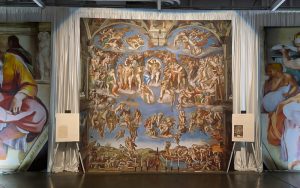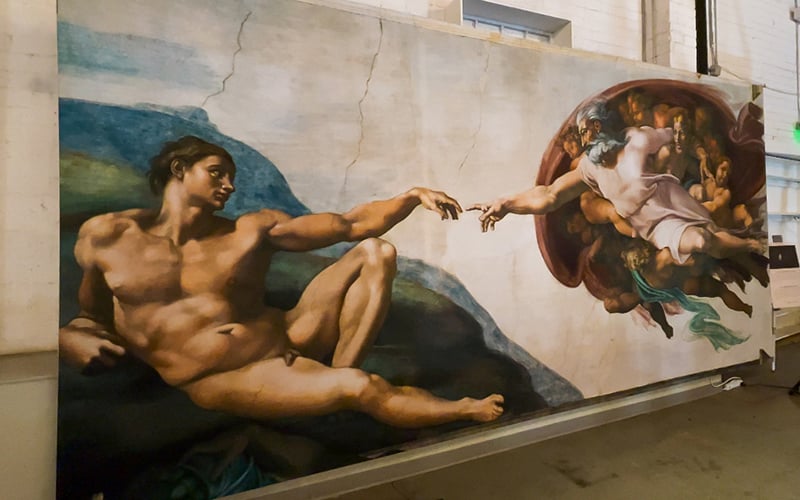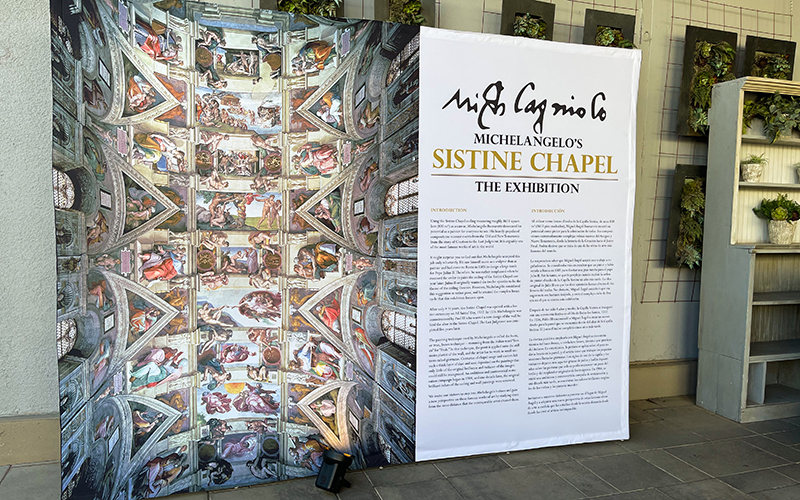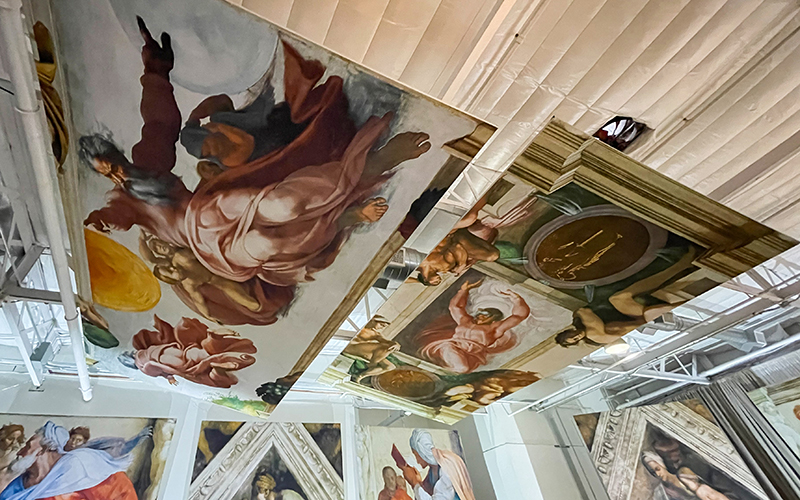PHOENIX – Details of Michelangelo’s famous frescoes in the Sistine Chapel, which are all but impossible to see in the Vatican, are right above your head at a new exhibition downtown.
Visitors to “Michelangelo’s Sistine Chapel: The Exhibition” can view life-size prints of some of the artist’s most famous works spread across 10,000 square feet and multiple rooms at the Croft Downtown, an event venue in Phoenix’s warehouse district.
The traveling exhibit comprises 34 stunning panels of work that can only be viewed from a distance inside the Vatican. It will be at the Croft through Feb. 14.
Angela Karp, co-founder of the venue, heard about the exhibit before the COVID-19 pandemic began in March, but it wasn’t until months later that she knew she wanted to bring home a piece of Italy.
“Now more than anything … we need to feel like we’re traveling,” Karp said. “So we brought Rome … to Phoenix.”
Because of the pandemic, visitors enter the exhibit using a timed ticketing system to prevent crowds. Only 100 visitors are allowed per hour, and masks are required, according to Martin Biallas, CEO of SEE Global Entertainment, producer of the exhibit.
Although photos are not allowed of the frescoes at the Vatican, visitors to the Phoenix exhibit are welcome to snap away. Among the works guests can pose with is “The Creation of Adam,” the iconic depiction of God and Adam reaching to touch fingertips.
The one print that isn’t to scale is “The Last Judgment,” portraying the second coming of Christ and the final judgment of humanity for its sins. The original, painted from 1536 to 1541, covers the wall behind the altar in the Sistine Chapel.
Biallas has a life-size version, but it wouldn’t fit in the event space. Instead, guests will view a smaller, but no less brilliant, version.
Biallas – who recalls being rushed through tours of the chapel because of the throngs of visitors – said one of his goals with the exhibition was to give people time to pore over Michelangelo’s masterpieces.

“The Last Judgment” was the last fresco Michelangelo completed in the Sistine Chapel. The original, painted from 1536 to 1541, covers the wall behind the altar. (Photo by Megan Marples/Cronkite News)
The 68-foot-tall ceilings of the Sistine Chapel also make it difficult to admire the details, but at this exhibition, the paintings are less than an arm’s length away.
The photos of the frescoes were taken by Austrian photographer Erich Lessing and his team.
The giant prints look strikingly real, which Biallas said was one of his goals when creating the exhibit. Frescoes have a unique texture because the artist paints on wet plaster, which can be difficult to reproduce in a reprint.
“It took us about a year to find the right material (to print on),” Biallas said. That turned out to be a woven fabric that can be stretched taut onto aluminum frames. If visitors look closely, they can see the woven texture.
Karp said she hopes the event offers a reprieve from the isolation caused by COVID-19.
“I just think that now, it’s more important than ever for families to be able to feel like they’ve got somewhere to go,” she said.



